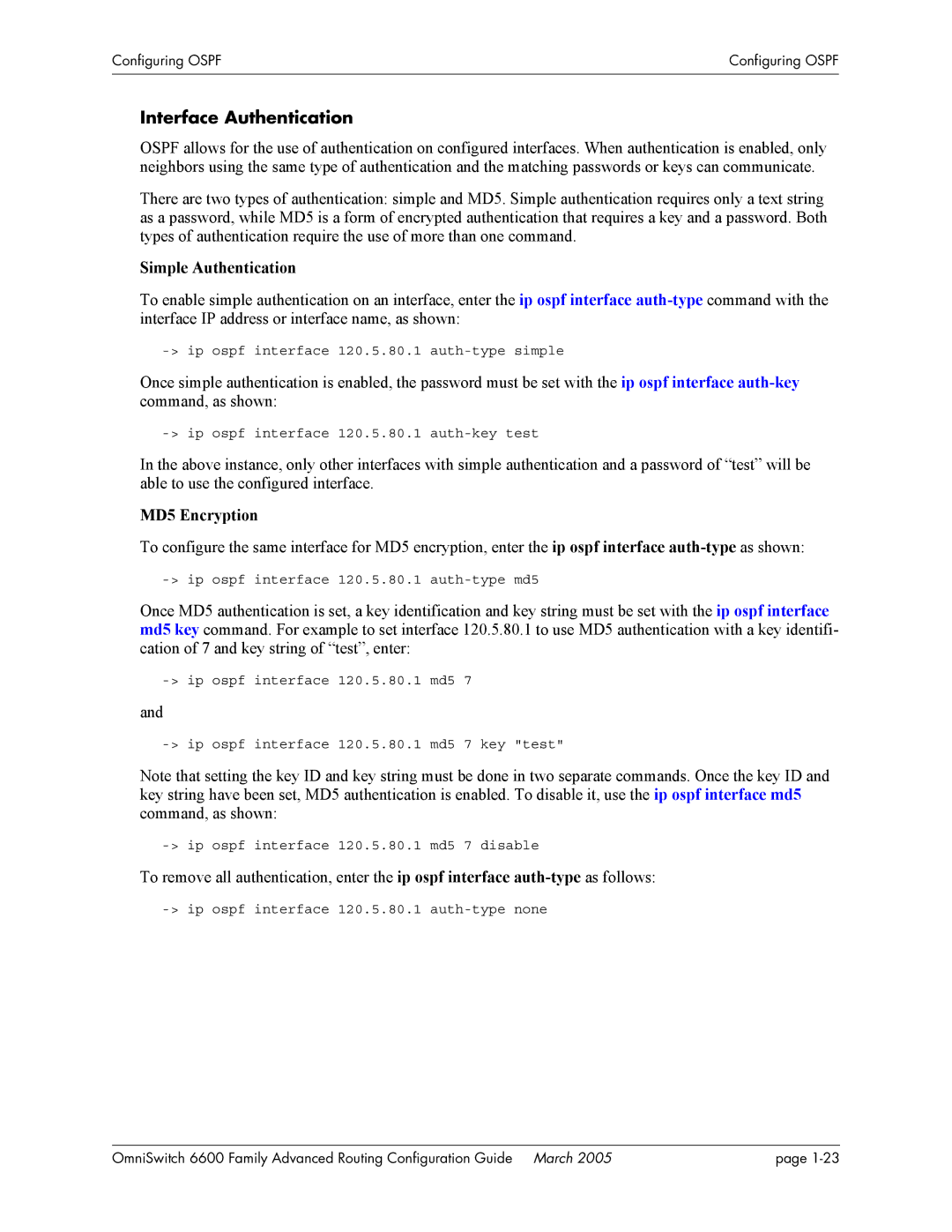Configuring OSPF | Configuring OSPF |
|
|
|
|
Interface Authentication
OSPF allows for the use of authentication on configured interfaces. When authentication is enabled, only neighbors using the same type of authentication and the matching passwords or keys can communicate.
There are two types of authentication: simple and MD5. Simple authentication requires only a text string as a password, while MD5 is a form of encrypted authentication that requires a key and a password. Both types of authentication require the use of more than one command.
Simple Authentication
To enable simple authentication on an interface, enter the ip ospf interface
Once simple authentication is enabled, the password must be set with the ip ospf interface
In the above instance, only other interfaces with simple authentication and a password of “test” will be able to use the configured interface.
MD5 Encryption
To configure the same interface for MD5 encryption, enter the ip ospf interface
Once MD5 authentication is set, a key identification and key string must be set with the ip ospf interface md5 key command. For example to set interface 120.5.80.1 to use MD5 authentication with a key identifi- cation of 7 and key string of “test”, enter:
and
Note that setting the key ID and key string must be done in two separate commands. Once the key ID and key string have been set, MD5 authentication is enabled. To disable it, use the ip ospf interface md5 command, as shown:
To remove all authentication, enter the ip ospf interface
-> ip ospf interface 120.5.80.1 auth-type none
OmniSwitch 6600 Family Advanced Routing Configuration Guide March 2005 | page |
